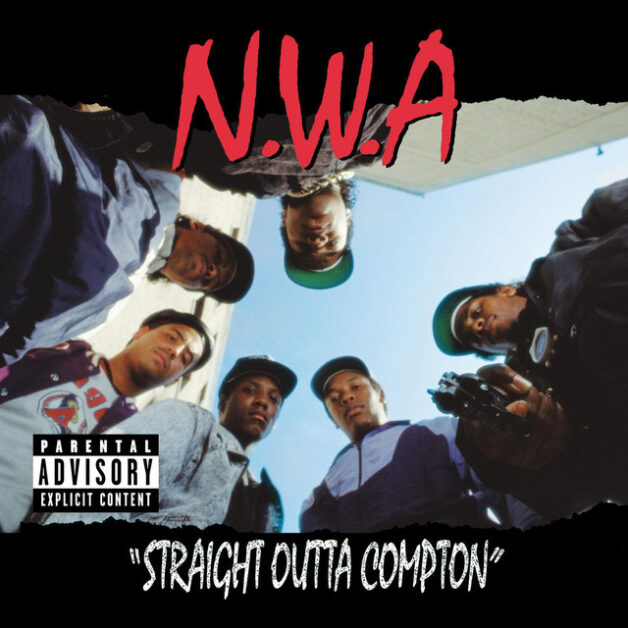“F*ck tha Police,” N.W.A.

“F*ck the Police” is probably one of the most “arresting” songs that N.W.A. ever put out. The music was not like anything anyone had ever heard. Moreover, no one knew that they could say those things like that to the police! Ice Cube would later say that the song came out his frustration with law enforcement that routinely harassed him and his friends.
Released 15 years (shy 2 days) from the founding of Hip-Hop, it birthed something else. The record appeared on the Straight out of Compton album and birthed a bold energy of protest against racial injustice, affording Black folk the permission to say that there was something wrong about police-involved violence perpetrated by way of racial profiling. It is said that while people clearly knew that the police operated from a racist perspective on many levels, they moved as if they were blinded by the illusion that all cops did what they absolutely had to do. The FBI even sent them a note to Ruthless Records to say that the lyrics misrepresented police. Radio stations across the world banded the spinning of the record — but all of that attention made the single bigger.
Just listen to Ice Cube break it down how racial profiling ravished his teen years:
“Fuck the police comin’ straight from the underground … A Young nigga got it bad ’cause I’m brown … And not the other color so police think … They have the authority to kill a minority … Fuck that shit, ’cause I ain’t the one … For a punk motherfucker with a badge and a gun … To be beatin’ on, and thrown in jail … We can go toe-to-toe in the middle of a cell … Fuckin with me ’cause I’m a teenager … With a little bit of gold and a pager … Searchin’ my car, lookin’ for the product … Thinkin’ every nigga is sellin’ narcotics.”
Interesting enough, the record almost 33 years after its release is still relevant and continues to communicate this ever growing sentiment about crooked law enforcement.
In 1988, the group had no idea that this would be the song that opened up doors that laid down the foundation for West Coast’s rap music. There would be no Kendrick Lamar or Vince Staples the way we know them if were not for this song.